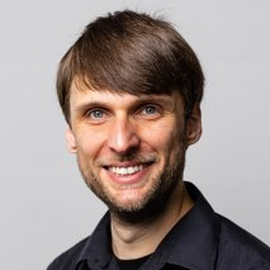Researcher Portrait Dr. Chistopher Anders

Dr. Christopher Anders was PhD candidate in the Machine Learning group of Prof. Dr. Klaus-Robert Müller. At the beginning of the year 2024 he successfully defended his thesis and has now moved on to become a Postdoc in Japan. He started working at RIKEN AIP, in the Approximate Bayesian Inference Team led by Emtiyaz Khan. Before leaving Berlin, he told us what research topics drive him and where one can find him when he's not sitting in front of the computer.
Please describe the topic of your PhD thesis?
Christopher: My PhD thesis is titled: "Debugging Learning Algorithms: Understanding and Correcting Machine Learning Models". Deep neural networks have started to shape many aspects of our everyday lives. Despite their impressive performance, they rarely offer the transparency to understand the reasons behind their predictions (e.g., why does ChatGPT give a specific answer?). This can be problematic, as these models are trained on large data sets, which can easily contain biases we are unaware of. Naturally, these biases will find their way into the final model. In my PhD thesis, I worked on approaches to identify whether neural networks have learned such biases, and how to remove them without completely retraining the model.
Which major innovation do you expect in your research field in the next ten years?
Christopher: In my first semester of my computer science bachelor at TU Berlin in 2012, we were told that it might take 10 to 20 years for a computer system to be able to beat a professional Go player, due to the game's complexity. Not even 4 years later, Lee Sedol was defeated by Alpha Go, a machine-learning based computer program. Hence, I believe that it is very difficult to make good predictions on future innovations. That being said, I think it is most likely that we will see some smart architectural choice or improved optimization algorithm for deep neural networks which will give them a big performance and efficiency boost, making them more viable for everyday use.
What personally motivated you to enter research?
Christopher: During my exchange year at Tohoku University in Sendai in 2014/15, in what was called "Individual Research Training", I implemented my first neural network. As I closely followed its training progress, I saw an algorithm getting increasingly better at recognizing the difference between English and non-English words. This was the first time I saw a machine learn, and I was deeply fascinated. This experience ultimately lead me into machine learning research.
Which living or historical scientist has fascinated you and why?
Christopher: Rather than a single scientist, I was always fascinated by the recency of the great scientists that helped shape computer science. Figures like Noam Chomsky (still alive today), Alan Turing, John von Neumann, and Edsger W. Dijkstra seemed so much more accessible to me than those commonly known in mathematics or physics.
AI is considered a disruptive technology - in which areas of life do you expect the greatest upheaval in the next ten years?
Christopher: I can imagine that AI will make interactions with computers in our every-day lives entirely possible through only natural language, without the current clunkiness, delay, and functional limitations. This will enable us to organize our lives in a more human-friendly way, without too much neck-bending, typing and swiping. Although I find it hard to imagine everyone casually talking to their smartphone or the ticket machine in public, I find it very plausible, as we do not seem to have an issue with this when the opposing party is human.
Where would one find you, if you are not sitting in front of the computer?
Christopher: Likely on my bicycle in a forest, in a field, by a lake, or somewhere in Japan enjoying a chat with the locals.
How is it that you speak Japanese fluently?
Christopher: In my childhood, the mother of a neighbor child, was very enthusiastic about Japan. After a visit to Japan, she brought back "Pokemon Green," which her son and I eagerly played - despite not understanding a thing. On German TV, "Detective Conan" was also broadcast, which showcased many aspects of Japanese life, fascinating me with this similar yet somehow very different culture. That's why, at the age of 14, I decided to learn Japanese, first at the community college, then with a lot of tandem lessons. I enjoyed the language so much that I stuck with it. After graduating from high school, I went to Japan for the first time in 2012 and, thanks to my language skills, was able to make friendships that still exist today.


